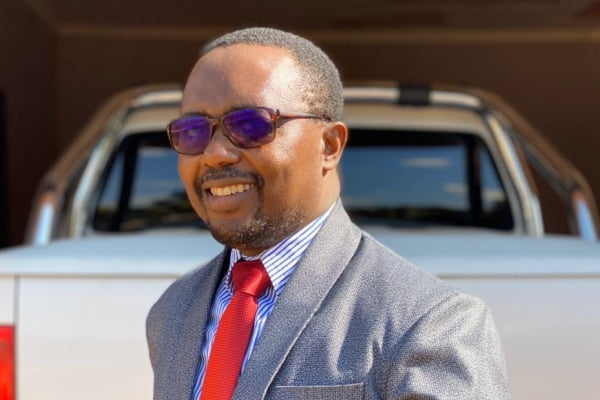WOMEN farmers have asked Parliament to expedite the crafting of the Mines and Minerals Amendment Bill so that it solves conflicts between miners and farmers where deep pits have been left open due to illegal mining activities at their farms.
The Women in Land Zimbabwe (WLZ) made the plea recently before the Parliamentary Portfolio Committee on Mines which is led by Shurugwi South MP Edmond Mkaratigwa.
Their plea comes at a time when several stakeholders in the mining sector want the current Mines and Minerals Act revamped as it is archaic and does not deal with modern mining issues and technological advances.
WLZ national coordinator Thandiwe Chidavarume said illegal miners were encroaching into farmland owned by their members, digging in search of gold and were leaving deep pits.
“We know that there are laws like the Mines and Minerals Act which stipulates distances between mining and farming and states that if the land is less than 100 hectares there must not be mining activity taking place. However, we have seen people with 25 hectares of land only being given mining permits,” Chidavarume said.
“Illegal gold panners are digging deep pits and causing environmental degradation and as a result livestock is falling into the pits and dying. When our women farmers report to the police nothing is being done,” she said.
Chidavarume said Shurugwi is one of the most affected areas. Recently, the Parliamentary Portfolio Committee on Mines visited Shurugwi where they saw the land degradation left by illegal mining activities at farms. But the committee members insisted that the laws are there but it is the implementation that is weak.
“We are pushing for the passing of the new Mines and Minerals Amendment Bill so that it includes measures that solve miner and farmer conflicts. The old Mines and Minerals Act gives too many powers to miners and puts minerals at the expense of farming,” she said.
The Minister of Mines Winston Chitando told delegates during a recent workshop for MPs on issues of mineral transparency which was organized by the Transparency International Zimbabwe (TIZ) that the Mines and Minerals Amendment Bill is likely to be brought before Parliament after September 17.
“When we met with MPs during a workshop in Mutare, we indicated that there was the need to have further breakaway sessions by the Attorney General’s office and the Mines Ministry so that they work on the amendments to the Mines and Minerals Act. They completed the exercise and they have been re-writing the amendments in legal language which is suitable for presentation to Parliament.
“Next week on September 17, the Ministry of Mines will have a workshop to go through all the amendments in the draft Bill and thereafter we will be in a position to present the draft amendments to the Mines Portfolio Committee,” Chitando said.
He said his Ministry was also looking at the issue of the Extractive Industry Transparency Initiative (EITI) with a view to adopting it. The Minister of Finance Mthuli Ncube in his 2020 budget statement said Zimbabwe will adopt the EITI but to date, the country has not done so.
“As I indicated in Mutare, the starting point for EITI is for us to have a workshop or seminar with ministry officials so that they understand the implications of EITI because currently, they do not know EITI. When we talk of EITI we need to talk of the budget needed to implement it.
“We know the EITI basic principles but we cannot implement principles. We need an implementation strategy because right now we do not know how to implement it, how to join EITI, the databases that we need and how to share them, as well as how and what we should disclose under EITI. We also need to know what is involved in joining EITI and why countries that did not join EITI decided not to join,” Chitando said.
TIZ said they were ready to provide technical assistance to the ministry in terms of capacitating them on EITI.
The TIZ executive director Muchaneta Mundopa said there is a need for mineral accountability and transparency because Zimbabwe is in debt distress and is donor-dependent, yet it is richly endowed with different minerals.
“It is our hope that the Mines and Minerals Amendment Bill will catalyse the growth of the economy. TIZ also believes that small scale miners play a big role in mining and we hope the legislation will be transformed so that they graduate from being insecure and being a source of conflict to a sector which does meaningful mining,” Mundopa said.
She said Parliament plays a pivotal role in reviewing mining contracts and ensuring good revenue management and urged that the current bottlenecks in the Mines and Minerals Act must be removed through a new minerals Act.
The awaited Mines and Minerals Amendment Bill, therefore, is expected to solve several issues – from miner and farmer conflicts to strengthening accountability and transparency in mining revenue.
.png)




